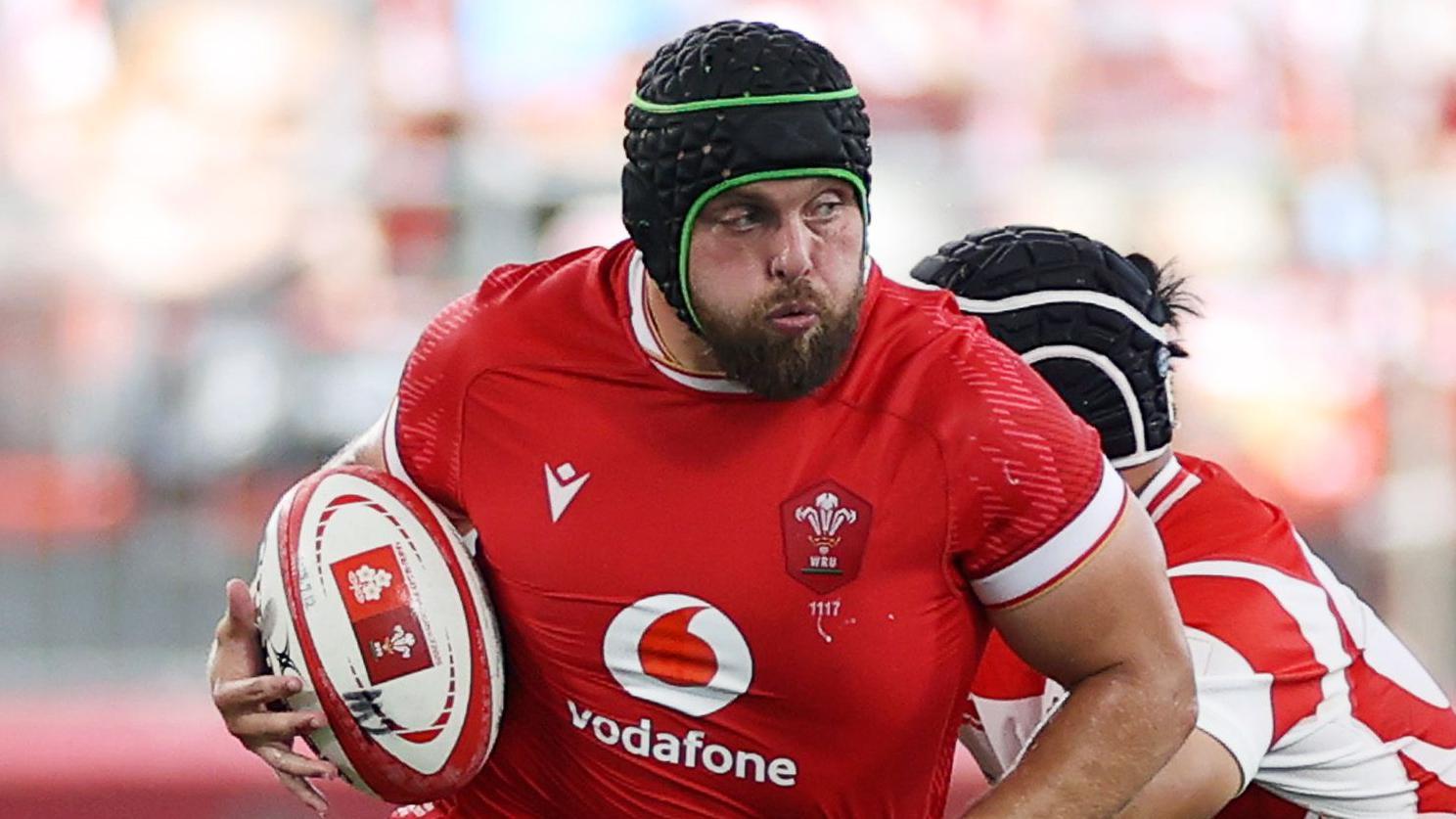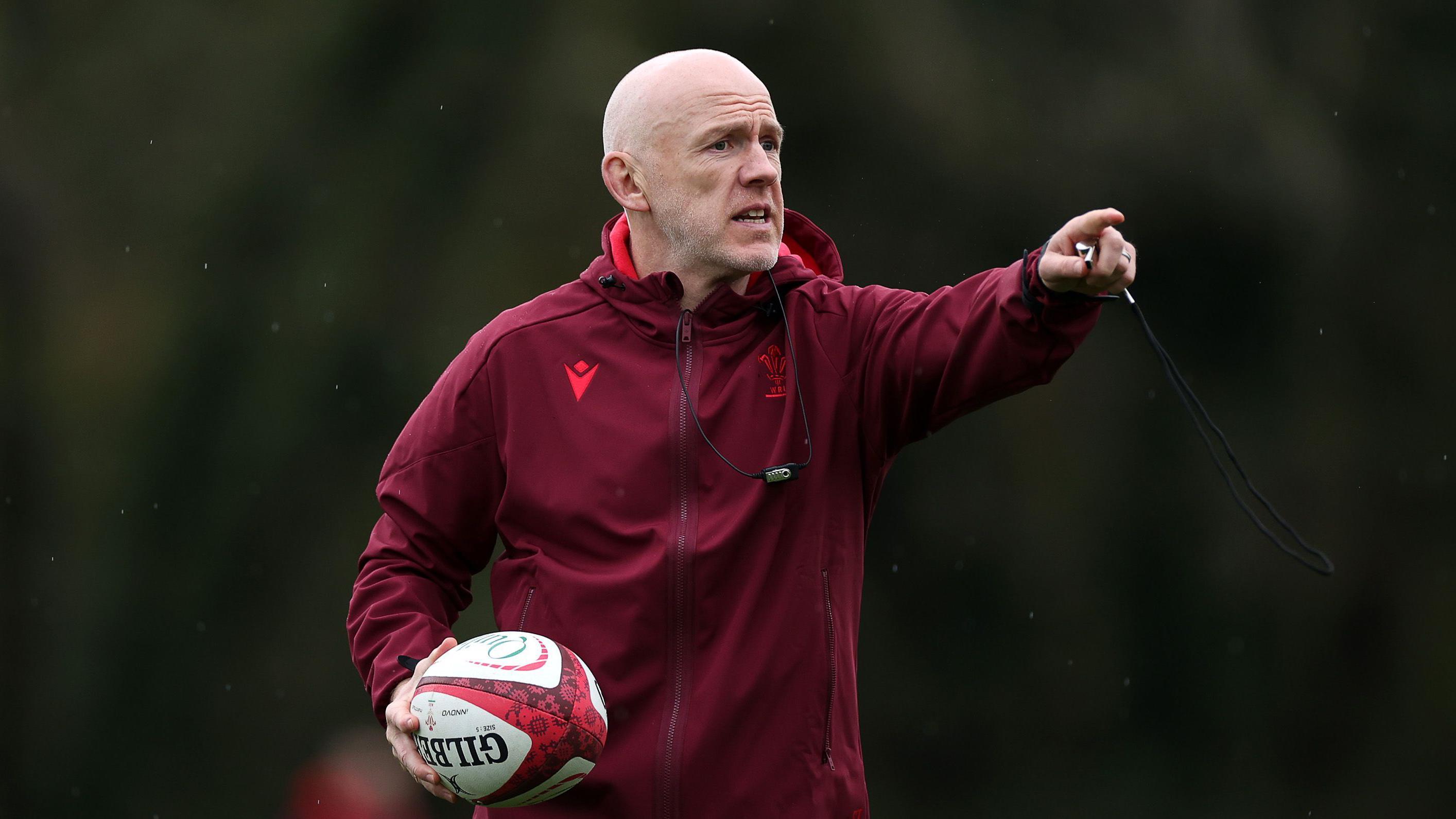Wales Faces Rugby Apocalypse as Club Cut Threat Ignites Fury Among Players and Fans
The Welsh rugby landscape is poised on a precipice, with the potential reduction of professional clubs from four to three stirring controversy and anxiety within the sport. The Welsh Rugby Union (WRU) has proposed this drastic measure, putting Ospreys and Scarlets in jeopardy, leaving players and fans alike grappling with the ramifications of such a decision. Loose-head prop Nicky Smith, who made his international debut for Wales in 2014, has publicly stated that the squad will not “bury their heads in the sand” regarding the turmoil this proposal has ignited.
Smith, now playing for Leicester after his tenure with the Ospreys, acknowledges that while there is a significant amount of “noise” surrounding the issue, the primary focus for the Welsh players remains on their performance on the pitch. He insists that players must openly discuss concerns off the field to maintain their concentration and commitment during matches. The gravity of the situation cannot be understated; the prospect of losing a club echoes broader themes of instability and uncertainty, mirroring sentiments seen in various socio-political spheres.
As Wales prepares to kick off their autumn international series against Argentina, the squad faces the backdrop of potential upheaval within their domestic structure. New head coach Steve Tandy steps into the role amid discussions among the WRU and regional club bosses, who are evaluating the implications of cutting a professional club by 2027. This proposed shift has already begun to impact player contracts, with notable names like captain Jac Morgan and Josh Adams attracting interest from overseas clubs as their current agreements wind down.
Smith’s experience adds weight to the conversation. Having witnessed the chaos surrounding potential mergers during his time with Ospreys, he understands the mental strain that can accompany such transitions. The uncertainty surrounding club futures creates a challenging environment for players, who must channel their focus into training and performance while wrestling with the stresses of contract negotiations and potential relocations.
The mental fortitude required to navigate these challenges cannot be overstated. Tandy’s emphasis on clear communication within the squad reflects a growing understanding of the importance of mental well-being in professional sports. Players are encouraged to express their thoughts and feelings, not only about the current situation in Welsh rugby but also about personal and professional concerns. This culture of open dialogue is essential, allowing players to compartmentalize distractions and dedicate their energy to the team’s aspirations.
Wales finds itself facing a formidable Argentine side known for its powerful forward pack and dynamic backline. The Pumas are not only physically imposing but also exhibit a modern approach to the game, blending traditional brute strength with finesse and agility. Smith acknowledges the need for the Welsh team to be prepared for a multi-faceted challenge. The Argentines, consistently ranked among the world’s top rugby nations, have shown a capacity to adapt their playing style, making them a daunting opponent.
As Tandy prepares to announce his line-up, competition for places in the team intensifies. Smith’s position as a starting loose-head prop is challenged by Gareth Thomas, alongside promising uncapped talent Danny Southworth and the experienced Rhys Carre, who has demonstrated strong scrummaging skills at Saracens. This competitive atmosphere within the squad can be viewed as a microcosm of the larger challenges facing Welsh rugby, where adaptation and resilience are paramount.
The discussions among club leaders and the WRU signify a pivotal moment for Welsh rugby. The decision to maintain a four-region structure has significant implications for the sport’s future, affecting player development, fan engagement, and financial viability. The historic rivalry and camaraderie that define these clubs must be weighed against the pragmatic considerations of sustainability and performance in a changing rugby landscape.
As the autumn series begins, the players’ resolve to perform under pressure is commendable. However, the looming threat of club cuts serves as a constant reminder of the precarious nature of professional sports. The intersection of financial realities and the passion for the game creates an environment ripe for debate, reflection, and potential transformation. The choices made in the coming months will undoubtedly shape not only the immediate future of Welsh rugby but also its legacy in the broader context of the sport.

Autumn international: Wales v Argentina
Venue: Principality Stadium, Cardiff Date: Sunday, 9 November Kick-off: 15:10 GMT
Coverage: Commentary on BBC Sounds, BBC Radio Wales, BBC Radio Cymru and live text on BBC Sport online.
Prop Nicky Smith says the Wales squad will not ‘bury heads in the sand’ over the prospect of a professional club being cut.
Wales start their autumn series with uncertainty due to the Welsh Rugby Union (WRU) wanting to go from four regions to three – with Ospreys and Scarlets in the firing line.
"Of course there is a lot of noise but the main thing is that the boys just want to play for Wales," said Smith, formerly of Ospreys and now at Leicester.
"Whether on the pitch or in training, they just want to put their best foot forward.
"There is no point burying our heads in the sand. It’s good that we talk about it off the pitch and then when we are on it we are focused and have got everything off our chests."
- Rees-Zammit has ‘boxes to tick’ for Wales return
- Wales v Argentina – all you need to know
- Griffin aims to be Wales’ magic number three
Wales kick-off their campaign under new head coach Steve Tandy against Argentina on Sunday with further games against Japan, New Zealand and South Africa.
While the squad are preparing for the Pumas, meetings are taking place between bosses at Cardiff, Dragons, Ospreys and Scarlets and the WRU to discuss the proposal to scrap one region by 2027.
Star players such as Wales captain Jac Morgan, Josh Adams and Aaron Wainwright are already on the radar of overseas clubs as their contracts run down.
Smith, whose Leicester contract expires at the end of the season, has been watching the saga from a distance, but the 31-year-old has lived through his fair share of chaos.
"It’s nothing new because when I was at the Ospreys I was out of contract when a merger was coming around the corner," said Smith.
"It’s a bit easier for me now that I am out of the picture, but when I was in it things were distracting and stressful."
The Swansea-born forward believes a willingness among players and coaches to talk about problems is helpful.
"If we want to get something off our chests – and that’s not just what is going on now in Welsh rugby, it’s anything – then we do," he added.
"That’s what Steve [Tandy] wants because with a clear mind you can give your best for the team."
Wales braced for Pumas’ power

Smith was the starting loose-head when Wales ended their 18-Test losing streak against Japan in Kobe in July.
He is in pole position to get the number one jersey against Argentina’s formidable scrum when Tandy announces his line-up on Friday but there is increased competition.
Smith and Gareth Thomas have been joined by uncapped in-form Cardiff prop Danny Southworth and recalled Rhys Carre, who has been carrying hard and scrummaging strongly for Saracens.
High standards in training are preparing the pack for a daunting date with an Argentina side that relish collisions but also have plenty of elusive players who can avoid them.
"They have always had a big pack but now we have seen how expansive they can be," said Smith.
"Their back line is incredible and the forwards are big and physical but can chuck the ball around as well.
"They will always pride themselves on physicality but there is more to them than that and we have to be ready for anything."
